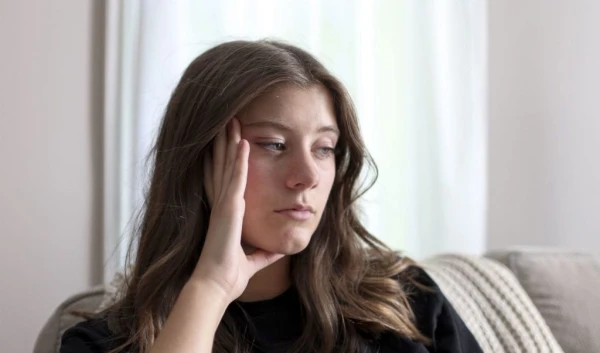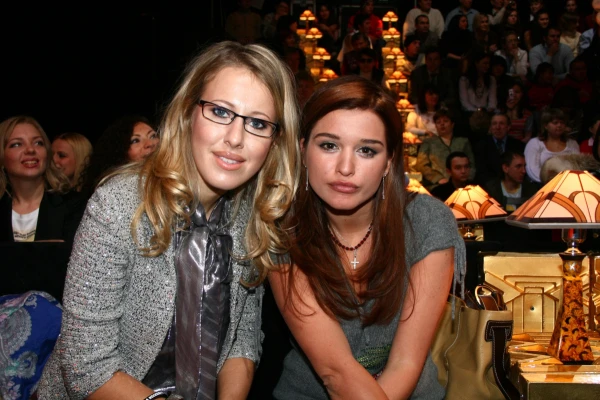
The unspoken 'laws of life' that we absorb from childhood often lead us to doubt ourselves, tolerate poor treatment, and forget our own needs. What specific beliefs make life unhappy and how can we combat them?
We are bombarded with opinions and advice from all sides. We are told what we should do and what we should strive for. These messages are absorbed from childhood and accepted as a given, which can be difficult to dispute at times. Over the years, they turn into beliefs — unspoken rules by which we live. Unfortunately, many of these beliefs, instead of helping, drag us down, hindering our ability to build happy relationships, grow, and take care of ourselves. Let’s explore with psychologist Evgenia Zmirenkova what the main beliefs are that make a woman's life unhappy.
1. The Perfectionism Belief
“Be a good girl, study well, don’t make mistakes” — who among us hasn’t heard this in childhood? As a result, many women grow up with the belief that they must be perfect in everything: in work, in relationships, in motherhood, in appearance. They constantly compare themselves to others, criticize themselves for the slightest missteps, and are never satisfied with themselves.
As a result of this pursuit of perfection, a woman constantly feels tired and unhappy. She feels that she is not good enough: not slim enough, not smart enough, not successful enough. She exhausts herself with diets, works to the bone, and constantly searches for reasons: “What is wrong with me?”
And as a result, she loses the joy of life and drives herself into a state of chronic stress and dissatisfaction with herself.
2. “Good Girl Syndrome”: The Desire to Please Everyone
It is agreed that many women are raised with the belief that they must be kind, caring, and please everyone around them. They fear saying no, asserting their boundaries, and often sacrifice their own interests and needs for others, forgetting about themselves.
“Imagine a situation where a woman is very kind and responsive and is always ready to help friends, colleagues, and relatives. She takes on others' responsibilities, listens to others' complaints, and tries to please everyone, forgetting about herself,” says the psychologist. “As a result, she feels exhausted, burned out, and completely unhappy. She has no time or energy for her hobbies, her dreams, or her own life. She has dissolved into the needs of others, forgetting about herself, and often doesn’t even ask herself the question: ‘What do I really want?’
3. “I Must Be Strong”: The Prohibition on Showing Weakness and Vulnerability
“In our society, it is often believed that women must be strong and independent. They must cope with all difficulties on their own, not show their emotions, and not ask for help. As a result, many women suppress their feelings, fear showing weakness, and do not allow themselves to be vulnerable,” Evgenia Zmirenkova explains.
Such a woman always keeps everything under control, does not show her emotions, and does not allow herself to relax. She fears that if she shows weakness, she will be considered weak, incompetent, and insecure. But ultimately, she feels lonely and isolated. She has no one to share her experiences with, no one to rely on in difficult times. She is constantly in a state of tension and stress, which sooner or later can lead to psychosomatic illnesses.
4. “I Don’t Deserve Love”: Low Self-Esteem and Disbelief in One’s Attractiveness
Many women suffer from low self-esteem and do not believe in their attractiveness. They feel that they are not beautiful enough, smart enough, or interesting enough to be loved. As a result, they often choose unsuitable partners, endure mistreatment, and do not allow themselves to be happy in relationships.
“In practice, such a woman constantly doubts herself and does not believe in her attractiveness. She thinks she is not good enough for a worthy man,” the expert explains. “As a result, she ends up with someone who does not appreciate her and treats her poorly. But even in such relationships, the woman is afraid to change anything because she believes she won’t find anyone better. She is convinced that she does not deserve better and prefers to endure mistreatment rather than be alone.”
Each of these beliefs hinders a woman from being happy, successful, and healthy, concludes the psychologist. It is important to understand that these beliefs are not innate but acquired. They have formed under the influence of upbringing, society, and personal experience, and by replacing negative beliefs with positive ones, every woman's life will change for the better, filled with understanding of oneself, love, and happiness.













